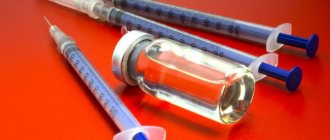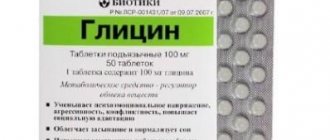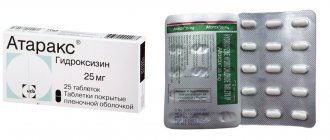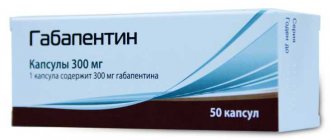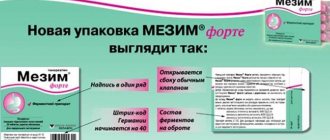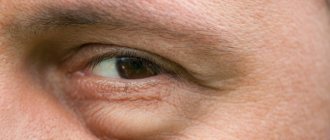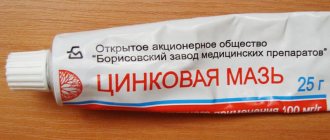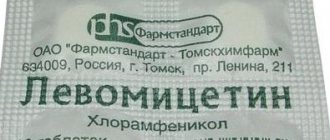Prevention of life-threatening infectious diseases is the main task of modern vaccination. It involves the artificial creation of an immune response to the entry into the body of pathogenic infectious agents that are sufficiently virulent to cause a serious disease. Most vaccines today are administered to patients according to a schedule. But there are vaccinations that are used only at the request of a person or for epidemiological reasons. Vaccination against pneumococcal infection is recommended. It is carried out with several vaccines, but the most common is Prevenar 13. This vaccine has been well researched. It has received the highest expert ratings, and this gives everyone confidence in its absolute safety in relation to the child’s body.
Why is this necessary?
As statistics show, in recent years, the greatest danger to the health of children is not rare viruses, nor deadly diseases, the defeat of which almost always leads to serious consequences. Simply because it is almost impossible to catch such an infection in our society. But the most common pneumococci are widespread, they are easy to “catch”, and the consequences can be unpredictably severe, especially if the disease is neglected. It is known that antimicrobial drugs are used to treat such infections, but in recent years, most pneumococci have developed stable immunity to this group of medications, so even timely therapy does not always give a positive result.
As experts (for example, Dr. Komarovsky) advise, the Prevenar 13 vaccine (reviews about it, it must be said, are not always positive) allows you to prevent the problem, and prevention, as we know, is always better than solving problems. Pneumococci known to modern medicine have developed resistance to medications, and it is very difficult to cure the disease. It is important to take into account that young children have a very weak immune system, so infection with pneumococcus can provoke very serious consequences. To prevent this, the Prevenar 13 vaccine was developed. Reviews about it indicate that some children tolerate the injection with difficulty.
The danger of pneumococcal infection
This group of infectious viruses (more than 90 species) circulates among human populations around the world. By its nature, Streptococcus Pneumoniae is considered opportunistic because it is part of the human microflora and can circulate in the body on an ongoing basis. 70% of all people are carriers of this virus.
The virus actively circulates in large groups in closed spaces - preschool/school institutions, army organizations, boarding schools, etc. It has been noted that the circulation of the virus is more pronounced in families with small children. However, the disease does not occur at any time, but when immunity decreases due to external or internal reasons.
Pneumococcal infection, in addition to pneumonia, causes:
- purulent meningitis;
- bronchitis;
- otitis media;
- sinusitis.
Also, this type of bacteria causes arthritis, endocarditis and sepsis, which under some conditions can lead to death (sepsis, severe meningitis). Until the age of six months, children are not susceptible to the disease due to pneumococcal antigens obtained from the mother's blood. The incidence of pneumonia and other ailments caused by pneumococcus has been observed in children from six months to six years of age. The severity of complications directly depends on the age of the child: the younger, the more dangerous the form of the disease.
Several types of vaccines have been developed to protect against this virus. Two forms of the drug are common in our country:
- Pneumo 23;
- Prevenar 13.
These vaccines differ significantly from each other in composition and immunization schedule. Which one is better? Let's consider the features of each vaccine, taking into account the effectiveness in relation to the production of antibodies to possible varieties of microbacteria (there are more than 90 of them).
Vaccination: will it help or not?
It is known that human immunity develops when it “meets the enemy face to face,” that is, it encounters pathogenic bacteria, viruses and microbes. If the infection turns out to be quite weak, the immune system easily defeats it and stores the information for the future in the form of antibodies. When a pathogen enters the human body again, the immune system immediately attacks it, and the disease simply does not have a chance to begin. As experts say, there is only one vaccine against pneumococcus that is truly effective these days - Prevenar 13. Reviews from parents, however, are different: some say that the vaccine is easily tolerated, while others complain of severe consequences.
In our country, as well as in most European countries, only the drug for pneumococcus “Prevenar 13” has passed all the registration, certification and testing procedures required by law. The drug is pure, studied in clinical settings, and is as safe as is possible in principle for this group of drugs: vaccines. According to research results, it has been proven that after using Prevenar 13, the concentration of antibodies in the blood increases by 70% - that is, immunity becomes 70% more powerful. As can be seen from official sources, reviews of the Prevenar 13 vaccine from specialists are mostly positive; doctors recommend giving such an injection to a child to prevent severe infection in the future.
Vaccine "Prevenar 13"
The drug is available in the form of a suspension consisting of pneumococcal polysaccharides and a carrier protein. Each polysaccharide is part of a destroyed and, accordingly, greatly weakened bacterium. In the Prevenar vaccine, the developers included 13 serotypes of bacteria that can cause pneumonia and otitis media that are resistant to antibiotics.
As a result of vaccination with Prevenar 13, the body receives a safe amount of antigens. Vaccination promotes the production of antibodies to the resulting polysaccharides, which form immunity to pneumococcal infection. Doctors call this reaction the body's immune response.
As a result of the fight against artificially introduced bacteria, the so-called immune memory is formed in the human body. That is, if the same infection enters the body again, the latter already has a worthy means to combat the disease. But the Prevenar vaccine is capable of forming immunity only to those serotypes of the pathogen that are included in its composition. If another type of infection enters the body, the vaccine will be powerless.
Prevenar 13 is a clinically studied product approved by EU experts. It is as safe as can be.
How it works?
Diseases caused by infection with pneumococcus are quite widespread - these are sore throats and meningitis, which are familiar to many. Infection with harmful bacteria can initiate otitis media or pneumonia.
As can be seen from the reviews of the Prevenar 13 vaccine compiled by experts, the product contains an antigen, that is, a pathogen in a weakened form. It is known that the immune system becomes stronger if it meets the disease directly, and this is precisely the meeting that the Prevenar 13 injection provides. The variant is controlled, therefore it is much safer than accidental infection. It is important to remember that pneumococcus (not in vaccine form) is an unpredictable, powerful pathogen that causes life-threatening health problems. As can be seen from the instructions and reviews, Prevenar 13 provides a controlled meeting of the immune system and pneumococcus, on the basis of which the internal organs receive and store data about possible danger, and then use them in the future to ensure a healthy state of the body. Since the pathogen is present in a weak form in Prevenar 13, during the normal course of the process the vaccine is safe even for small children, there is no likelihood of developing a full-blown disease.
Reviews of Prevenar vaccinations
Reviews about the Prevenar vaccine, found in large numbers on various forums, cause a lot of controversy and doubt. Of course, for many parents such a preventive measure seems very attractive, but some of them are absolutely not sure of its usefulness and effectiveness. In addition, people have the impression that such vaccinations can cause side effects and even death among young children.
In addition, there are reviews from doctors about Prevenar online, whose comments also vary markedly. Some write about the effectiveness and safety of this vaccine, while others prefer to avoid administering the vaccine to their patients. Experts write that the drug does not include serotypes that mainly cause pneumococcal infections, which is why the vaccine is unlikely to be effective. In addition, it is reported that the Prevenar vaccine is, for some reason, temporarily banned in a number of countries, for example, in the Netherlands.
Users often admit that they are almost persuaded to undergo the vaccination procedure in private clinics. In addition, sometimes there are dissatisfied comments from patients who write about the development of side effects, in particular increased body temperature. How Prevenar is tolerated is of interest to many.
In contrast to dissatisfied comments, many reviews are positive. Such messages include information that vaccination is quite successful and without the occurrence of any undesirable effects. Many parents write in their reviews that they strictly adhered to all the recommendations prescribed by the doctor, maintaining the established interval between vaccines, thanks to which their children got sick less, their immunity was strengthened, and they calmly attend kindergarten and other public places without fear of catching one or another. other infection.
When should it be done?
As experts say, Prevenar 13 should be done if there is a risk of infection with Streptococcus pneumoniae. The drug allows you to develop immunity against seven serotypes of the disease (listed in detail in the instructions).
As can be seen from the reviews of parents, the Prevenar 13 vaccine is usually given between the ages of two months and the age of five. The injection is given only if parents are thoroughly familiar with the instructions for the drug and the possible side effects. Parents give their consent to the Prevenar 13 injection in an official written form. As can be seen from the reviews, after vaccination with Prevenar 13, the child may become ill: the temperature rises, and other consequences are possible. The doctor who recommends the injection should be warned about all this. The doctor also instructs parents in advance on what to do if the child’s body reacts negatively.
Preparation and actions after vaccination
In order for your child to receive Prevenar vaccination without negative consequences, it is worth paying attention to some norms of behavior:
- Before vaccination, you need to get tested and visit a pediatrician.
- The injection site should not be wetted during the first 24 hours; during this period, you should refrain from full bathing.
- The nutritional rules are the same for the period before and after Prevenar vaccination. If a woman is breastfeeding, she should avoid allergenic foods. There is also no need to give them to a child if he is older.
- There is no need to avoid walking outdoors if the weather conditions allow you to take a walk. You just have to avoid crowded places so that the child does not become infected with any infection.
Vaccination: how is it done?
Prevenar 13 is intended for injection into the muscle. At the age of up to 2 years, it is injected into the thigh in the anterolateral zone. At the age of two years and older, the drug is injected into the shoulder, into the deltoid muscle tissue.
You can use Prevenar 13 and other vaccines at the same time (with rare exceptions). Prevenar 13 and the BCG test cannot be combined, since the results of the second one suffer - the information based on the test results will be incorrect.
Contraindications to Prevenar vaccination
The Prevenar vaccine is sold in pharmacies only with a doctor’s prescription, since there are a number of contraindications for its use:
- The presence of chronic pathologies in the acute stage.
- An acute infectious disease occurring during a specific period of time.
- Ages younger than 2 months and older than 5 years.
- The color of the vaccine must be uniform. The small flakes in the vaccine should dissolve completely when shaken. Otherwise, this drug should not be used.
If you strictly follow the instructions for use and certain rules, you should not be afraid of the consequences of vaccination.
Moreover, one ampoule contains only one dose of the vaccine, so there is no risk of overdose. Even if the subsequent vaccination is administered ahead of time, the possible side effects will not differ from those that may occur from using the drug in the required doses.
Prevenor vaccination is allowed to be given simultaneously with any other vaccines except BCG. True, the injection site for each vaccine should be different.
Believe it or not?
In many countries, Prevenar 13 is currently one of the mandatory vaccinations for children. This is typical for all Scandinavian countries and North America. This allows us to talk about the reliability of the product and its proven benefits, at the same time about safety when used correctly. However, not everything is so obvious. For example, in the Netherlands, Prevenar 13 is prohibited for use. Why? As can be seen from the reviews, after vaccination with Prevenar 13, some children have a rather difficult time surviving the period of infection.
There are several rules that must be followed. If at least one of them is violated, the result of using the injection becomes unpredictable. It is forbidden:
- inject the drug into a vein;
- mix the drug with other vaccinations;
- inject the vaccine into an area of the body where another composition has already been injected.
As a rule, reviews after vaccination with Prevenar 13 are positive if parents entrusted their child to a reliable, experienced doctor.
Vaccine analogues
Among the most popular and effective analogues are Prevenar 13 with a wider spectrum of effects against pneumococci, as well as Pneumo 23 and Synflorix.
If we take into account the recent timing of the introduction of the vaccine into the Russian calendar list of vaccinations, then it is still difficult to determine which of them is currently the best among our patients. But all these vaccines have existed on the world pharmaceutical market for many decades, and, in addition, each of them has already proven itself well.
Features of vaccine administration
In order for Prevenar 13 to show maximum effectiveness, it is necessary to follow the drug administration schedule. This is formed individually for each child, and age must be taken into account. Thus, up to six months, children are vaccinated according to the “3+1” logic, injecting 0.5 ml of the active component each time. It is necessary to wait at least a month between the first three injections, and the last one is given when the child is one year and 3 months old.
As can be seen from the reviews, “Prevenar 13” is also administered to children whose age varies between 7-11 months, 0.5 ml, but the sequence is different: first two injections, between which a month or more should pass, then the third, when the age – one year and older. If the Prevenar 13 vaccine is given for the first time at the age of 12-23 months, then, while maintaining the previously mentioned dose, two injections are sufficient, between which a temporary break of two to three months is taken. Finally, as can be seen from the reviews, Prevenar 13 is given to children over two years of age, but under five years of age, only once, injecting 0.5 ml of the active component.
Basic recommendations regarding the use of the vaccine
The instructions indicate that the Prevenar vaccine must be administered only in a clinic or private treatment room that has permission to perform a similar type of medical procedure. Vaccination of children from high-risk groups is carried out using the Prevenar 13 vaccine solution, which is sold in pharmacies in sealed packaging.
Before administering the vial with the antipneumococcal drug, shake well to remove any sediment. It is forbidden to inject expired Prevenar 13, as well as a heterogeneous non-white solution. During the process of administering the vaccine, it is important to adhere to the basic rules of vaccination with Prevenar, as well as to observe age-specific dosages.
A sealed vaccine with an unbroken seal is suitable for use for three years after its manufacture. It is correct to store the drug in the refrigerator at a temperature of 2 to 80 C. It is better to purchase Prevenar at the places suggested by your pediatrician.
Rules of introduction and recommendations
The Prevenar vaccine is administered intramuscularly. Depending on the symptoms and age of the child, the solution is injected into different places. For children under 24 months of age, it is recommended that the vaccine be administered in areas with the least accumulation of nerve endings and fatty tissue. This prevents rapid absorption of the grafting fluid. The ideal injection site at this age is the anterolateral thigh. For children over 2 years old, the solution is injected into the deltoid muscle located in the shoulder area.
Pneumococcal vaccination is sometimes combined with whooping cough vaccine. If it is necessary to develop an immune response against several diseases at once, then before vaccination the child should be given antipyretic drugs for preventive purposes. This will make it possible to prevent an increase in the baby’s temperature and prevent the development of a hyperthermic reaction.
The Prevenar vaccine should not be injected into the buttock area. Especially for the youngest children. Infants are at high risk for developing vaccination consequences associated with damage to the sciatic nerve during injection. The vaccine must not be used intravenously.
Immunization schedule
Immunization with the Prevenar vaccine is carried out in several stages. The duration and number of intervals depend on the age characteristics of the patients. According to generally accepted rules, infants over 60 days of age are vaccinated following the following scheme:
- for children aged 2-6 months, the first three injections are given monthly (the interval between doses is at least 30 days), and revaccination is prescribed at approximately 15 months;
- For infants after six months and up to one year, three-time administration of the vaccine is recommended according to the following scheme: the interval between the first and second injection should be no more than a month, and the third vaccine is performed at 24 months;
- For children from one to two years of age, during primary vaccination, two doses of the vaccine are sufficient. Revaccination is done no earlier than after 8 weeks;
- Children of the younger preschool age group (from 2 to 5) are usually given the Prevenar vaccine once in a standard dose.
Doctors do not increase the frequency of administration of the vaccine if the interval between vaccination rounds has been extended due to the baby’s illness. The vaccine is given intramuscularly. Children under two years of age receive Prevenar 13 in the thigh area. Children from two to five years old are given an injection into the brachial muscle. If the child has impaired blood clotting function, then the injection is not refused, and it is given subcutaneously.
If the vaccination course was started with the Prevenar vaccine, then revaccination is done only with the drug in question. Otherwise, antibodies to pneumococcal infection will not be produced in sufficient quantities. During primary vaccination with Prevenar or Prevenar 7, in case of emergency, the vaccine can be replaced with the proven Prevenar-13. This will not affect the formation of active antibodies in the patient's serum.
The dose of the drug is 0.5 milliliters of solution. For children, this amount of the drug does not change with age, as it is a stable constant. Each dose of prophylactic solution is contained in a syringe intended for single use. There is no need to transfer the dose of liquid into other containers before use. It is injected into the body directly from a syringe.
Immediately after the procedure, the child is supposed to remain under the supervision of medical staff for another 30 minutes. This is necessary during primary vaccination for timely diagnosis of immediate type reactions (anaphylaxis, angioedema) and in this case providing medical assistance to save lives. Premature babies should be observed for three days due to the risk of apnea (stopping breathing). Children whose primary vaccination was completed without complications are not observed.
When is it not possible?
Like any other medication, Prevenar 13 has a list of contraindications. The list includes hypersensitivity to the drug detected during the initial administration of the drug, as well as an acute disease detected during the period for which the injection is planned. As reviews confirm, Prevenar 13 should not be administered if high susceptibility to diphtheria toxoid is established.
Prevenar 13 should not be used by adults. The drug is not suitable for vaccinating children born with an infectious disease, as well as babies diagnosed with HIV. In some cases, Prevenar 13 is given only after examination by an infectious disease specialist or pediatrician and receiving appropriate explanations about the possible risks associated with the use of the drug.
Indications for vaccination
The administration of the Prevenar 13 vaccine is a preventive measure, the purpose of which is to form a stable immune response to a number of pneumococcal serotypes with the highest degree of virulence. The vaccine is used to immunize children aged 0 to 5 full years. The vaccine is not used in older children and adults due to its low effectiveness.
First of all, it is recommended to vaccinate children from a high-risk group against 13 serotypes of pneumococcus:
- premature babies;
- babies who were early transferred to an artificial type of nutrition;
- newborns after birth trauma;
- infants in the first months of life and children after one year with signs of developmental delay;
- children suffering from immunodeficiency;
- children who often suffer from ARVI and influenza;
- infants diagnosed with seizure disorder.
Pediatricians advise vaccinating a child with Prevenar if he often suffers from acute respiratory infections, otitis media or pneumonia. The fact of such diseases does not confirm the presence of pneumococcal flora in the body. Therefore, immunization does not have to be immediate. Primary vaccination in this scenario can be carried out as planned after examining the child and under the supervision of a doctor.
Pre-vaccination examination plays an important role in the process of generating a sufficient immune response. The pediatrician must study the baby’s medical history and determine how high the risk of complications after immunization is. For example, in patients with acquired or congenital immunodeficiency, the post-vaccination reaction will be weak and insufficient to develop full immunity against pneumococcal infection.
The Prevenar 13 vaccine is not recommended for adult patients due to its low effectiveness. But there are variants of clinical cases when vaccination should not be abandoned. Some categories of the population are at high risk:
- elderly people over 65 years of age;
- HIV-infected persons of all age categories;
- patients with decompensated liver pathologies, complex variants of the course of endocrine pathologies, severe forms of renal failure and cardiac disorders;
- persons suffering from blood diseases;
- people who are constantly in areas with large concentrations of other people;
- medical workers.
In any case, before administering the solution, a person is recommended to undergo an examination and visit an immunologist to determine the indications and contraindications for vaccination with Prevenar.
What then?
As can be seen from the reviews, side effects of Prevenar 13 are relatively common. Doctors warn that even with good tolerance, the child’s body will in any case necessarily react to the arrival of the pathogen. Despite the fact that the infection appears in the blood in a weakened form, it provokes the immune system to produce an antigen (otherwise the effectiveness of Prevenar 13 would be zero). In fact, this means that the child suffers from the disease for which the injection is given, just in a mild form.
The normal reaction of a child’s body is expressed in an increase in temperature to 37.5, lethargy, and loss of appetite. The area where the injection was given may become red and hard. Some children become fussy or restless after receiving the vaccine. An increase in temperature provokes chills. Such a reaction is included in the concept of the body’s normal response to a pathogen. Symptoms usually disappear after a few days. In order for the body to effectively cope with the disease, it is necessary to ensure calm, minimize contact with other children and not visit public places, including educational institutions. After the vaccine, you must make an appointment with the pediatrician every three days until the doctor reports that examinations are no longer needed and the child is fine.
Possible side effects from the vaccine
Like any other vaccine, this one can lead to various adverse reactions in the human body. The most common symptoms that may occur include the following side effects:
- Increase in body temperature after vaccination.
- Among approximately a third of those vaccinated, local painful reactions to the administration of the drug are observed, and in addition, slight weakness in the extremities.
- There is an enlargement of the lymph nodes.
- Local and general allergic reactions are likely to occur.
- After vaccination, children may be nervous, irritable, or lethargic and drowsy for a short time.
- After vaccination with Prevenar, redness or thickening may be observed at the injection site. Such complications are typical for older children.
- Appetite is impaired, nausea and vomiting are likely to occur.
- Seizures and apnea rarely occur, which is more common among children with an underdeveloped respiratory system.
- More severe reactions are also possible, such as anaphylactic shock, swelling and bronchial spasms. Side effects from Prevenar are quite unpleasant and sometimes downright dangerous.
According to the vaccination calendar, the vaccine can be used simultaneously with other vaccinations. For this reason, it is sometimes difficult to determine exactly which of them caused complications. An important condition after using Prevenar vaccination is to remain under the supervision of health workers for at least half an hour. This is required in order to react in time to possible unwanted reactions of the body.
In situations where any complications occur that do not go away within 24 hours, with the exception of possible shock, bronchial spasms or angioedema, as well as vomiting and other serious conditions, you should call a doctor. The reaction to Prevenar may vary.
When should you worry?
As can be seen from the reviews, Prevenar 13 can cause a much stronger negative reaction from the body. Experts note that they are divided into several categories - sometimes there is nothing to worry about, and sometimes the symptom shows serious disturbances in the functioning of internal systems. In any case, it is recommended to consult your doctor as soon as possible for a full examination and timely assistance.
A doctor's help is needed if the temperature rises to 38 degrees or more, the child faints (or another disturbance of consciousness is observed, for example, delirium). If 24 hours after the injection the body’s reaction continues to increase, it means that Prevenar 13 did not work correctly and qualified help is needed. Also dangerous is the inflammatory process in the area where the medication is administered. As doctors note, in some cases, a persistent increase in temperature should not cause concern, since it is an individual normal reaction, but only a specialist can make this conclusion after examining the child.
Analogs
Analogues of the drug "Prevenar" are:
- Synflornix;
- Prevenar 13 broad spectrum;
- Pneumo 23, containing 23 strains of pneumococci.
It is quite difficult to single out any one remedy from the list, since all of them have been successfully used for vaccination against Streptococcus pneumoniae for a long time.
Much more parents are interested in the very need for vaccination against pneumococci. It was added to the compulsory vaccination calendar quite recently, since the number of patients susceptible to pathologies due to pneumococci is constantly growing. Therefore, it is possible that in the near future vaccination will become the only effective method of combating the spread of these types of microorganisms.
Vaccination done: what to do next?
After an injection with Prevenar 13, you should not treat this area with any alcohol tinctures, as well as solutions of manganese, iodine or brilliant green. It is unacceptable to apply compresses, apply vegetable leaves and make lotions. The Prevenar 13 injection site cannot be covered with a band-aid.
As doctors note, after vaccination, you can wash the treated area with boiled water, and if dirty, wipe with a clean, damp cloth. You can safely leave this place outdoors without special covering and protection.
What to choose?
Which vaccine is better? It should be emphasized that Pneumo 23 is not recognized in the United States. It is believed that although the vaccine contains 23 components, stable antigens are produced only for 17 types of pneumococci. The European vaccine is unconjugated, which means it does not affect children under two years of age. Therein lies the danger: the most severe complications after viral infections are observed precisely at this age. Of the twenty-three components, only thirteen are “children’s”, and the remaining 10 forms of viruses infect the adult body.
There is another drawback to the European Pneumo vaccine: with each revaccination, the effectiveness of antigen production decreases. The injection itself is extremely painful, which also has its drawbacks.
Important! According to the recommendations of immunologists, this drug is more expedient and better administered for specific medical indications, and not for personal reasons.
Let’s say, if you manage to prove that your child or you yourself often catch colds and have a weakened immune system, you will be vaccinated at the clinic for free with the European drug Pneumo. In accordance with logical reasoning and practical results of use, the best immunological drug is the American version - Prevenar 13 (or 7). The only drawback of the American vaccine is its high price (about 4,000 rubles). However, the efficiency is also at a high level.
Are these types of vaccines mutually exclusive? No, they are not. After immunization with Pneumo, Prevenar can be given. It is advisable to coordinate the question of the advisability of introducing one of these drugs with the attending physician/pediatrician. Cost is also important when choosing a priority. However, the risk of complications after viral diseases with the European drug is much higher.
Watch the video about vaccinations:
WE ADVISE YOU TO READ:
Why is the Pneumo 23 vaccine needed? What age is it intended for?
Previous article
BCG - contraindications and application features
Next article
To do it or not?
It is known that Prevenar 13 is banned in the Netherlands. In addition, on the Internet you can find negative reviews about the results of the injection, which provoked serious consequences, including coma and death. There is no exact information about whether this was due to the fault of the doctors who gave the injection incorrectly or administered the drug to a sick child, or whether the problems were actually caused by the Prevenar 13 composition.
As can be seen from the official information on this medicine, Prevenar 13 has passed all the studies, tests, procedures, received special permits and was approved, recommended and even introduced into the compulsory vaccination program in many developed countries of the world, including the USA. In our country, parents have the right to independently decide whether their child needs such an injection. In extreme cases, meningitis, sore throat, pneumonia are much more dangerous than the classic reaction of the child’s body to Prevenar 13 (and even complicated by a side effect). As doctors say, when collecting information about those who have already received such an injection, it is better to communicate with parents personally. This will allow you not only to learn about the real consequences of vaccination, but also to clarify where you can buy the drug in your city.
Who is particularly advisable to receive this vaccination?
The drug is not prescribed to every person, and the issue is not the cost of the vaccination. According to the available instructions for use, the Prevenar vaccine should be given to the following categories of patients:
- Children under two years old.
- Premature babies.
- The vaccine is allowed for frequently ill children under five years of age.
- Allergic children definitely need Prevenar. Komarovsky, like other pediatricians, claims that this drug is safely used with other vaccines that are included in the immunization calendar, according to age standards.
- Children suffering from chronic diseases, namely: immunodeficiency virus, diabetes mellitus, diseases of the respiratory system, cirrhosis of the liver, as well as against the background of severe pathologies of the cardiovascular system.
Adults, along with children over five years of age, are not prescribed this vaccine, which is due to the fact that their immunity itself is capable of producing antibodies against the pneumococcal bacterium. The above category of people will not have the necessary immune response of the body to Prevenar. The instructions confirm this. This vaccination also does not apply to nursing and pregnant women.
It is important!
"Prevenar 13" was developed specifically for vaccination of children. This remedy is completely unacceptable to use in adults. There is no information about the consequences of administering the drug during pregnancy or during breastfeeding. At elevated temperatures, Prevenar 13 is not administered, but wait until the patient has fully recovered.
It is known that in extremely rare cases, Prevenar 13 provokes anaphylactic reactions with severe complications. To prevent such a situation, and if it develops, to urgently help the child, it is necessary to remain under the supervision of the attending physician for half an hour after the injection. Given the certain likelihood of apnea, it is important to monitor the child’s condition for another three days after administration of the medication. The greatest attention should be paid to the patient if the child's respiratory system is not mature enough.
Who is recommended for the Prevenar vaccine?
The method of transmission of pneumococcal infection from a sick person to a healthy person is through airborne droplets, so the risk of infection is very high. However, not always, when an infection enters the body, it develops and leads to illness. Even if a person does not have any symptoms of infection, he can be a carrier of the infection.
People most susceptible to infection are people with weakened immune systems, that is, young children, the elderly, and people with chronic diseases. Moreover, for infants from 6 months of age who do not have immunity to infectious agents, infection can face severe and long-term consequences. Up to six months, children are still protected by maternal immunity.
Vaccination against pneumonia Prevenar is recommended for several categories of the population.
Children are given this vaccination in the following cases:
- upon reaching 2 months of age;
- babies born prematurely;
- children with weak immune systems who are susceptible to frequent colds - this vaccination is also required for admission to kindergarten;
- in the presence of chronic pathologies - diabetes, asthma, problems with the cardiovascular system, as well as HIV-infected people.
In adulthood, vaccinations against pneumococci are usually not given, since by this time a strong immune system has already been formed that can cope with infectious agents.
However, for some categories of the adult population Prevenar 13 vaccination is still indicated:
- aged people. In many countries, such vaccination has been made mandatory upon reaching 65 years of age;
- in the presence of cirrhosis of the liver, pathologies in the kidneys, diabetes mellitus and problems with the heart and blood vessels;
- patients with blood pathologies – sickle anemia;
- infected with HIV;
- those whose activities involve constant presence in crowded places.
What is the Prevenar vaccine?
A vaccine is a collection of microbes that are in a weakened state and cannot provoke the development of a full-blown disease. However, the immune system perceives them as risk factors, which forces it to take measures to launch protective measures. Thus, immune memory, later, when a person encounters a virus or bacteria, knows how to overcome them, which allows the person to suffer from a mild form of the disease or avoid its development altogether.
Prevenar is one of a number of preventive vaccinations that contains several serotypes of streptococcus, which provokes diseases that affect lung tissue. This microorganism (especially in childhood) can provoke the development of such dangerous diseases as pneumonia, bronchitis, hearing damage, meningitis, sepsis, and bacteremia.
These diseases have been the cause of high infant mortality for many years, which has been observed in many countries around the world. Every person has encountered streptococcus during his life, for some this contact went unnoticed, for others it brought a disease that required long-term treatment. The fight against streptococcus, or more precisely its known and most common strains, is, today, the main task set by the World Health Organization.
The Prevenar vaccine is produced in the United States by Pfizer. This vaccine contains a whole complex of so-called conjugates to infectious agents through a special carrier protein that binds them.
This protein is not the only component of the vaccine; it contains sodium chloride, succinic acid, polysorbate, aluminum phosphate, and injection water. The vaccine solution is packaged in disposable syringes with a volume of 5 ml.
The Prevenar vaccination has undoubted advantages:
- rare development of adverse reactions;
- minimal percentage of complications after immunization;
- a small number of contraindications to vaccinating a child;
- absolute safety and effectiveness of the solution, confirmed by clinical studies;
- the vaccine is approved for use in infants;
- the drug gives the child reliable protection against diseases caused by pneumococcus, even if a person gets sick, the course of the disease will be much easier;
- eliminating the risk of overdose;
- reasonable price of the drug.
Reviews
Thanks to positive reviews, Prevenar is considered a fairly popular vaccine for immunizing children. Analogs of the drug have a positive effect on the defense system.
Vaccination is easily tolerated and perfectly protects against various bacterial complications. Numerous reviews from parents prove its effectiveness.
Reviews from doctors
Many parents need professional answers from experienced doctors before starting vaccination. This helps to thoroughly familiarize yourself with the effect of the drug on the child’s body and reduce emotional stress.
- Ishchenko V.S., allergist-immunologist. It is necessary to get the Prevenar vaccine. It helps prevent inflammatory processes in the lung area. Thanks to it, it is possible to reduce the number of attacks of obstruction after viral diseases. As a rule, children tolerate this vaccine without any side symptoms. According to statistics, since 2019 the number of pneumonia has decreased by 10 times. Most often, instead of an injection, seals appear. They gradually dissolve on their own. Before performing a medical procedure, it is recommended to take a course of antihistamines. The exact dosage and period of use are selected by the pediatrician. These criteria directly depend on the age category and body weight of the child. When revaccination is carried out, it is necessary to take into account the patient's condition.
- Revutskaya, V.I., allergist-immunologist. You should not take Prevenar after suffering from a viral illness. At this time, the body is weak to introduce bacteria. Manipulations can be carried out after 2 weeks and if the patient is in good health. To prevent the occurrence of negative reactions, it is recommended to take blood and urine tests first. This will allow you to see the clinical picture of the body’s condition at the time of the medical procedure.
- Ivanova L.F., pediatrician. Moscow city. Recently, the number of diseases such as pneumonia, obstructive bronchitis and pneumonia has sharply decreased. This criterion is directly related to mandatory vaccination with Prevenar. It allows you to develop immunity against pneumococcal infection. In rare cases, the child's body exhibits adverse reactions. They consist of an increase in body temperature and thickening at the puncture site of the skin.
- Nevskaya E.I. As a specialist, I recommend that parents do not give up this drug. It will support vital functions during inflammation and resist the attack of pathogenic microflora. In addition, it helps prevent complications after bacterial diseases.
Reviews from parents
- Anna A., Vladikavkaz. We vaccinated up to a year 3 times with an interval of 45 days. The child tolerated this manipulation well. As for side effects, there were practically none. A small lump appeared at the injection site. After a couple of days it gradually decreased. During the period of viral diseases, the child began to get sick less often. The usual ARVI passes quickly without any residual symptoms. There are virtually no attacks of coughing or choking.
- Svetlana I., Krasnodar. Revaccination was carried out at preschool age. No side effects were observed. The vaccine was injected into the deltoid muscle of the shoulder. A small bump formed at the puncture site, which completely disappeared after 5 days. Thanks to this drug, the child became less likely to suffer from viral diseases. In addition, we were able to reduce the occurrence of obstructive bronchitis.
Release form, composition and packaging
Suspension for intramuscular administration, white, homogeneous; The presence of a white cloudy precipitate is allowed.
| 1 dose (0.5 ml) | |
| pneumococcal conjugates (polysaccharide + CRM197) | |
| polysaccharide serotype 4 | 2 mcg |
| polysaccharide serotype 6B | 4 mcg |
| polysaccharide serotype 9V | 2 mcg |
| polysaccharide serotype 14 | 2 mcg |
| oligosaccharide serotype 18C | 2 mcg |
| polysaccharide serotype 19F | 2 mcg |
| polysaccharide serotype 23F | 2 mcg |
| diphtheria carrier protein CRM197 | ~20 µg |
Excipients: aluminum phosphate, sodium chloride, water for injection.
0.5 ml - disposable syringes, colorless glass (1) - plastic packaging (1) complete with injection needles (1 pc.) - cardboard packs. 0.5 ml - disposable syringes, colorless glass (5) - plastic packaging (2) complete with injection needles needles (10 pcs.) - cardboard packs.
The vaccine meets WHO requirements for the production and quality control of conjugate pneumococcal vaccines.
Prevenar for children
Prevenar, the instructions for use included with each vaccine, requires a clear injection schedule. The dose required for administration to a person is 0.5 ml, it is located in a pre-prepared syringe. The number of doses and the schedule of their administration varies depending on the age period the child belongs to.
Prevenar vaccination schedule:
- 2 - 6 months: the baby is given three vaccines in a row, each at an interval of two months. After the baby reaches 1 year of age, he is revaccinated by administering another dose of the drug;
- 6 – 12 months: one dose is administered once, after 2 months it is repeated. Revaccination is indicated during the baby’s second year of life;
- 1 – 2 years: the child is given two doses of the vaccine, with a break of 2-3 months. Revaccination is no longer required;
- from 2 years: the baby receives one dose of Prevenar, without repeated administration, as well as revaccination.
Prevenar is administered intramuscularly into the lateral thigh area. After the child reaches two years of age, the vaccine should be placed in the deltoid muscle of the shoulder.
Characteristics of Prevenar
The drug is available in 2 versions. One of them contains 7 serotypes of bacteria, and the other - 13, which is reflected in the name - Prevenar 13. Medical institutions in Russia use this form, which provides protection against the most dangerous and common types of pathogens. This is not a live vaccine, but a conjugated polysaccharide antigen enhanced with diphtheria protein fragments.
The Prevenar vaccine is produced by pharmaceutical companies in the USA, Great Britain and Russia (NPO Petrovax Pharm LLC) in accordance with WHO requirements. A homogeneous white suspension (mixture) is packaged in 1 dose in disposable syringes.
Age limits are not indicated in the instructions.
It is acceptable to vaccinate children, adolescents and adults with Prevenar.
The course of vaccination ensures the production of antibodies and the formation of stable immunity in 90% of patients. The effectiveness of the drug in the prevention of infectious diseases has been proven by large-scale studies of medical clinics in the USA and Europe.
Doctors about the Prevenar vaccine
We also present to your attention doctors’ reviews of the Prevenar vaccine. We advise you to listen carefully to the opinions of experts.
Boyko Nikolay Ivanovich, Tver, children's clinic of city clinical hospital No. 1, infectious disease specialist.
As an infectious disease specialist, I can say that in 90% of cases the cause of ARVI in children aged 0.6-5 years is pneumococcal infection. The vaccine Prevenar 7 contains the 7 most common strains of pneumococci, Prevenar 13 – 13, respectively. However, lasting immunity is developed only by 7, as in Prevenar 7.
I believe that such vaccination will help protect your child from colds and, most importantly, from their complications. In my opinion, such vaccination should be included in the national vaccination calendar.
Khmelevskaya Lyudmila Ivanovna, Kursk, children's clinic No. 2, pediatrician.
Vaccination against pneumococcal infections, including Prevenar 7 and 13, must be done strictly on the recommendation of a specialist. No matter how caring mothers would like to protect their children from colds, the child’s body must itself learn to fight diseases and develop immunity.
You should not once again interfere with the physiological processes of a small, failed organism. Any medical intervention must be justified, including such vaccination.
Bondareva Elena Ivanovna, Berdyansk, children's clinic No. 1, otolaryngologist.
Very often the cause of acute otitis media in children is pneumococcal infection. Any otitis media is dangerous primarily due to partial or complete hearing loss, which is very difficult to treat.
Any drug course of treatment will also place a serious burden on the child’s gastrointestinal tract, liver, kidneys and heart. Therefore, I believe that it is better to prevent possible consequences than to risk your child’s hearing. An excellent way is to vaccinate with Prevenar 7 and 13.
Izmailov Mikhail Arturovich, Odessa, city children's clinic No. 4, infectious disease specialist.
I would like to note right away that I consider vaccination against pneumococcal infections necessary. The drug Prevenar 7 and 13 have positively proven themselves in medical practice. Most young patients tolerate vaccination easily, and only a few experience redness and swelling at the injection site.
This can be avoided by first starting to take antihistamines and antipyretics, and continue for two days after vaccination.
Do not forget that pneumococcal infection is the causative agent of infectious meningitis. Meningitis is an acute inflammatory lesion of the soft and arachnoid membranes of the brain and spinal cord. Many parents are mistaken in thinking that it is enough to protect their child from sick children. Anyone can be a carrier of the infection. Dear parents, approach such issues competently and responsibly!
Ivanova Larisa Yurievna, Volgograd, children's clinic No. 6, pediatrician.
I consider vaccination against pneumococcal infections to be an excellent preventive measure against infectious meningitis, otitis media, ARVI, pleurisy, endocarditis, and arthritis in children under 5 years of age. At this age, the child’s immunity is very weak and requires additional support.
Prevenar 7 and 13 have been laboratory tested and are safe for children. It is better to prevent serious illnesses than to subject the child to aggressive drug treatment and deal with the consequences.
How is the pneumococcal vaccine tolerated?
After the vaccine is administered, stay near the clinic for 30-40 minutes so that in case of an allergic reaction, timely emergency medical care is provided.
After vaccination, the post-vaccination period lasts 7-10 days: the child is placed on a home regimen, refrains from visiting crowded places, excludes contact with patients, and continues to take antihistamines for two to three days.
Local post-injection manifestations can be represented by limited hyperemia and edema, increased local temperature, severe pain symptoms - up to restrictions on limb mobility.
The general reaction of the body to the introduction of a vaccine is observed to one degree or another in almost everyone and can manifest itself:
- irritability, tearfulness, sleep disturbance;
- increased body temperature up to 38.5 °C, chills, joint and muscle pain, enlarged regional lymph nodes;
- loss of appetite, dyspeptic disorders;
- allergic rash and seizures.
If post-vaccination manifestations are observed for more than a day, consult a doctor to prescribe symptomatic therapy.
Side effects and complications are not always caused by the peculiarities or poor quality of the vaccine: they may be the result of errors during storage and transportation of the drug or failure to comply with aseptic rules when administering the injection.
Price and reviews
Reviews about vaccination with the Prevenar vaccine are mixed: from enthusiastic to extremely negative.
Many parents note that with strict adherence to all medical recommendations and with the introduction of only one vaccination (and not several in combination), the post-vaccination period was not violent, the temperature was low-grade - no higher than 37.2-37.5 ° C.
However, many children experienced hyperthermia above 38 °C, lethargy, tearfulness, and respiratory symptoms.
Some note that the general reaction was only to the first vaccination; subsequent ones occurred without significant side effects. Most respondents report pain of varying intensity at the injection site.
Streptococcal bacteria have so filled the human body that it is simply necessary to begin an intensified fight against them. They do not cause harm to a healthy, strong person, but in cases of weakened immunity or against the background of acute respiratory viral infections, streptococci cause very serious diseases.
To combat streptococcal bacteria and to prevent diseases caused by them, the vaccine against pneumococcal infection Prevenar was invented. What kind of vaccine is this?
Composition and pharmacological action of the vaccine
The vaccine contains :
- pneumococcal conjugates;
- carrier proteins;
- polysaccharides of several serotypes;
- aluminum phosphate;
- sodium chloride;
- injection water.
Vaccination ensures that the body produces antibodies, which give the child protection of a specific type from infections that provoke pneumococcus. Various vaccination schedules allow these vaccinations to be used in children starting from the age of two months.
An immune response is formed after the first administration of the drug; after the second administration, a secondary response occurs. Administration of three doses ensures a significant increase in the level of protective antibodies.
Children aged two to five years show a reaction in the form of a pronounced rise in protective antibodies after the first administration of the vaccine.
Instructions for use
The use of the vaccine requires strict adherence to the schemes developed by qualified specialists. Dosage regimens and regimens are directly dependent on the age of the child.
Separately, it is worth noting the rules for installing vaccinations of the immunostimulating variety:
- the baby’s absolute health, any kind of illness, even a slight cough is an absolute indication for temporarily postponing vaccination;
- permission for the joint production of Prevenar and other vaccines. However, not all pediatricians approve of this approach, because each vaccination is a separate stress for the child’s body, therefore, it is preferable to separate them by time;
- mandatory half-hour stay within the walls of a medical institution after the vaccine is installed. If the vaccination is given to a baby who is not yet 7 months old, to prevent the development of complications, there is a recommendation for a two-day hospital stay.
How is Prevenar different from Pneumo 23?
Despite the fact that both vaccines protect against the same infection, they are radically different in composition and have completely different immunization schedules.
Differences in vaccine composition
The Pneumo 23 vaccine is a drug of French origin, which was developed to form lasting immunity against the 23 most pathogenic types of pneumococcus.
The solution contains:
- antigens to the 23 most common strains of pneumococcal infection on the continent;
- phenol as a preservative;
- sodium phosphate.
The vaccine is available in the form of a white powder, which must be dissolved with water for injection according to the instructions before administration. The drug is enclosed in disposable syringes in a dose of 0.5 ml, intended for single use.
The Prevenar vaccine is an immune liquid of American origin. At first it contained antigens to the seven main pathogens of pneumonia, but this list was soon expanded.
Today, the Prevenar vaccine contains antigenic complexes for the 13 most dangerous types of pneumococcus for the human body, stabilizer aluminum hydroxide, a protein component and an anti-diphtheria component. The solution is placed in syringes for single use, which are used once and are disposed of after the procedure.
Difference in mechanism of action
Prevenar 13 is one of the conjugate vaccine suspensions that are able to adhere to the body's cells and form a persistent immune response. Whereas Pneumo 23 is a classic polysaccharide drug that does not have similar properties.
Vaccine Prevenar 13
American scientists deny the effectiveness of Pneumo 23 as a reliable means of preventing pneumococcal infection. Prevenar is indicated for babies from two months, and Pneumo 23 can be administered only after two years.
This is a huge disadvantage of the polysaccharide vaccine, since pneumococci pose the greatest danger to children in the first months of life, in whom they most often lead to the development of life-threatening pathological conditions.
Differences in vaccine response
Numerous studies confirm that after injection of Prevenar 13, persistent immunity against pneumococci appears by the end of the second week and remains at a sufficient level for many years.
Unfortunately, after injection of Pneumo 23, in most clinical cases immunity appears only to 17-18 declared strains instead of 23.
In addition, the injection of the drug is very painful, which once again emphasizes its outsider position. All modern vaccines are quite well tolerated by the human body. Naturally, their use sometimes leads to the development of reactions to the drug.
According to studies, the incidence of plug effects when using Prevenar and Pneumo 23 is almost the same, so it cannot be said that one vaccine is more dangerous than the other.
Characteristics of the drug Pneumo 23
The Pneumo 23 vaccine consists of purified polysaccharides of Streptococcus pneumoniae (13 serotypes are most dangerous in childhood and 10 pose a threat to adults with weakened immune systems). It is used for the specific prevention of bacterial infections in children over 2 years of age and adult patients at risk (patients with diabetes, leukemia, anemia, tuberculosis and other pulmonary diseases, cirrhosis of the liver, HIV-infected people and the elderly).
Immunity is formed after vaccination within 12-14 days and protects the body from pneumococcal infection for 5 years.
The Pneumo 23 vaccine is used to vaccinate children and adults in closed institutions (military groups, boarding schools), where pneumococcal infection circulates especially actively.
The vaccine manufacturer is the French company Sanofi Pasteur. In Russia, the drug has passed state registration and is included in the list of vaccines in the vaccination calendar.
The homogenized suspension is supplied in a sterile syringe, ready for use.
What is the difference between Prevenar and Pneumo 23
The main differences between vaccines:
- different numbers of Streptococcus pneumoniae strains included in the preparations;
- age of those vaccinated (Prevenar is vaccinated for children from 2 months, and Pneumo 23 - from 2 years);
- formation of an immune response (the conjugate vaccine provides more stable and long-lasting immunity);
- the cost of the drug Pneumo 23 is up to 1500 rubles, Prevenar is much more expensive - up to 4000 rubles.
The Pneumo 23 vaccine is used to vaccinate children and adults in closed institutions.
special instructions
Prevenar is not used in adults.
There are no data on the safety of the Prevenar vaccine during pregnancy and lactation.
As with other vaccines, administration of Prevenar should be delayed if the patient has an acute illness accompanied by moderate or severe hyperthermia.
As with other vaccines, in case of possible rare cases of anaphylactic reactions, the child should be under appropriate medical supervision for at least 30 minutes after administration of Prevenar.
Due to the potential risk of apnea, consideration should be given to monitoring the patient's condition for 48-72 hours during the initial vaccination series in children under 28 weeks of age, especially if there is a history of respiratory immaturity. Since the benefits of vaccination in this group of patients are especially high, you should neither refuse vaccination nor reschedule it.
Prevenar does not provide protection against Streptococcus pneumoniae serotypes not included in the vaccine or against other organisms that cause invasive disease or otitis media.
The reduction in the incidence of pneumonia, which was determined by X-ray examination, in children vaccinated, compared with those not vaccinated with Prevenar, was most pronounced in the first year of life (32.2%) and during the first 2 years of life (23.4%).
Antibody production to Hemophilus influenzae type b vaccine (Hib) conjugated to tetanus protein and to tetanus and hepatitis B vaccines was the same as when these vaccines were administered individually. The Hib vaccine conjugated to the diphtheria protein CRM197 has been described to enhance the production of antibodies to Hib and diphtheria when immunizing infants. During revaccination, a slight decrease in the content of antibodies to Hib was described while maintaining the protective level.
An inconsistent decrease in response to pertussis antigens, as well as to inactivated polio vaccine, has been described.
There is limited data on the co-administration of Prevenar with measles, rubella and mumps vaccine and varicella vaccine.
The experience of combined use of Prevenar with the hexavalent vaccine Infanrix showed the absence of a clinically significant effect on the formation of antibodies to each individual antigen after the third dose during primary vaccination.
Prevenar should not be given to children with thrombocytopenia or other bleeding disorders for whom intramuscular injection is contraindicated, unless the potential benefit of the vaccine significantly outweighs the risk posed by the vaccine.
Although the administration of Prevenar may produce antibodies (determined by the binding method) in response to the diphtheria carrier protein CRM197, the use of the Prevenar vaccine cannot replace standard immunization against diphtheria. The CRM197 carrier protein is a genetically modified, non-toxic form of diphtheria toxin.
In children with impaired immunoreactivity due to immunosuppressive therapy for HIV infection, or other reasons, the formation of antibodies in response to vaccination may be reduced.
Limited data indicate that in infants with sickle cell disease, Prevenar produces a sufficient immune response with a safety profile that is no different from infants not at increased risk. There are currently no data on the safety and immunogenicity of the vaccine in children from other high-risk groups for invasive pneumococcal disease (eg, children with hereditary or acquired splenic dysfunction, HIV infection, malignancies, nephrotic syndrome). The decision to vaccinate high-risk children should be made individually.
Children from high-risk groups under the age of 2 years are vaccinated according to the Prevenar vaccine prescription schedule.
In cases where children aged 24 months and older who are at high risk (for example, with sickle cell anemia, asplenia, HIV infection, chronic diseases with immune dysfunction), primary vaccination with Prevenar, a 23-valent pneumococcal polysaccharide is indicated vaccine, it should be administered with an interval of at least 8 weeks between vaccinations.
Prophylactic administration of antipyretics is recommended for all children receiving Prevenar together with whole-cell pertussis vaccines due to a higher risk of febrile reactions; as well as children with seizure disorders, incl. with a history of febrile seizures.
Prevenar is supplied in a ready-to-use syringe, the contents of which should not be transferred to another container or mixed with other medications.
What is the vaccine for and its composition?
The vaccine contains 30 pneumococcal conjugates. They are serotypes of bacteria. These substances are organic types of compounds that are obtained artificially. In their composition they are polysaccharides.
This medicinal product does not belong to the class of live vaccines. As a result, when it enters a child’s body, the absence of allergic reactions and the appearance of various post-vaccination diseases are noted.
The liquid composition contains the following types of polysaccharides. These include:
- Serotype 1-7.
- Bacterial conjugate 9,14,19,237
- Olisaccharide serotype 18.
- Diphtheria protein is a carrier.
The following are used as excipients:
- Aluminum salt.
- Carboxylic acid based on 2 components.
- Emulator polysorbate.
- Distilled water for injection.
The drug was first developed in the United States by a pharmaceutical company called Pfeiffer. Branches of this company are present in Ireland and Russia. Upon external examination, the vaccine appears as a white powder, which is located in a disposable glass syringe.
The volume of the container is 1 ml. When the powder mixture is dissolved, 0.5 ml of liquid is obtained. The package contains detailed instructions for using the drug. After the dry substance has dissolved, a slight sediment may appear on the walls of the glass syringe. This dosage is intended for one person.
Vaccination scheme
The vaccination schedule should be carried out according to the vaccination calendar. As a rule, the drug is used in several stages. The interval directly depends on the age category of the patient. According to generally accepted rules, the vaccine is administered according to the following schedule:
- Children from 2 to 7 months are vaccinated every month. The interval should be 30-35 days from the date of injection. Revaccination is carried out after 16 months.
- For children after 7 months of age and up to one year, it is necessary to administer Prevenar three times. The period between vaccinations should be from 1 to 1.5 months. Revaccination is carried out at 2 years of age.
- children aged 1 to 3 years are vaccinated by administering a medicinal composition in the form of a double dosage. The interval between injections is 1 month.
- the preschool group is vaccinated once a year.
Reviews after vaccination
Larisa, 28 years old, Moscow
I vaccinated my 2-month-old daughter at the clinic. The packaging indicated that the vaccine was brought from Ireland. The package with the drug was stored under proper conditions, and we also bought it ourselves. I didn’t want to immunize the child with unknown drugs, so I took everything under my control.
The vaccination took place without complications. The injection site did not turn red, and there was no swelling either. The re-vaccination was done 1.5 months later, because they couldn’t do it on time - my daughter caught a cold.
It is always difficult to assess the effectiveness of a vaccination, but it should not be neglected. I will vaccinate my daughter in accordance with the recommendations, because only timely immunization helps prevent many epidemics.
Olga, 32 years old, Ufa
A good drug, Dr. Komarovsky himself recommends it. Didn't cause any complaints. The injection was given in accordance with the doctor's recommendations. My son was born premature, so I had to “stay” in the hospital for 2 days. There were no side effects during this time. Even if something went wrong, the doctor was always there.
After a couple of days we give the last injection. The product is not cheap, but the last thing you should do is save on your child’s health. 5 years ago I vaccinated my eldest son with this drug. A healthy and strong child is growing up. I am sure that this vaccine played an important role in the formation of his immunity.
Denis, 35 years old, Donetsk
In Ukraine, vaccination with this drug is not mandatory. I had to deal with him 3 years ago. My daughter was often sick, so we decided to vaccinate her after a year. We settled on this vaccine.
The doctor gave the injection, waited the prescribed half hour - everything was fine. Upon arrival home, symptoms began to appear: the temperature jumped to +39°C, the throat turned red. We tried every means to bring down the fever. Nothing helped. I had to call an ambulance.
At the hospital we were told that such a reaction to the vaccine arose because the doctor gave the injection just 4 days after my daughter suffered from bronchitis. Because of such stupidity, the child's life was endangered.
In the hospital, all symptoms disappeared. After 3 years, I can say that I do not regret vaccination. My daughter gets sick much less often.
When immunizing premature babies, it is recommended to administer the drug 4 times.

